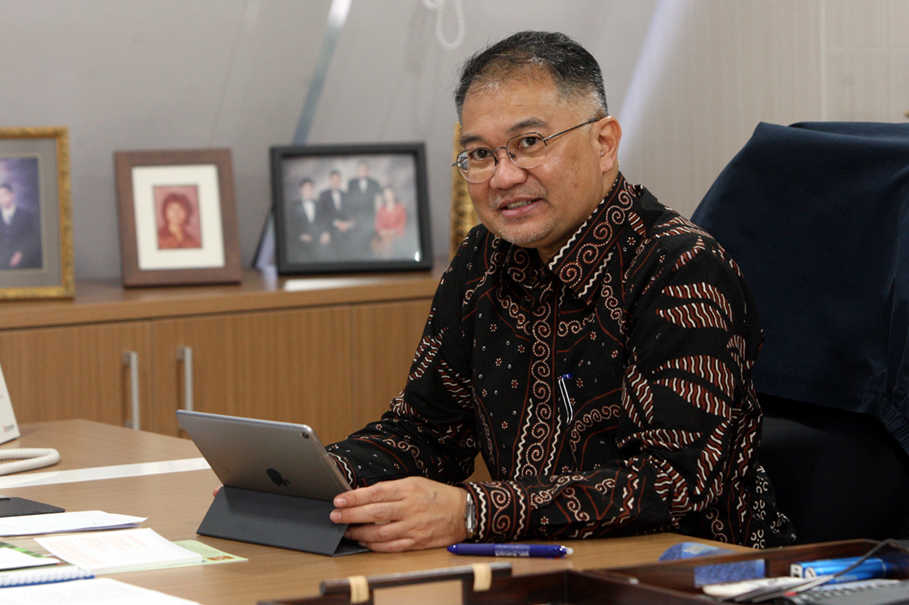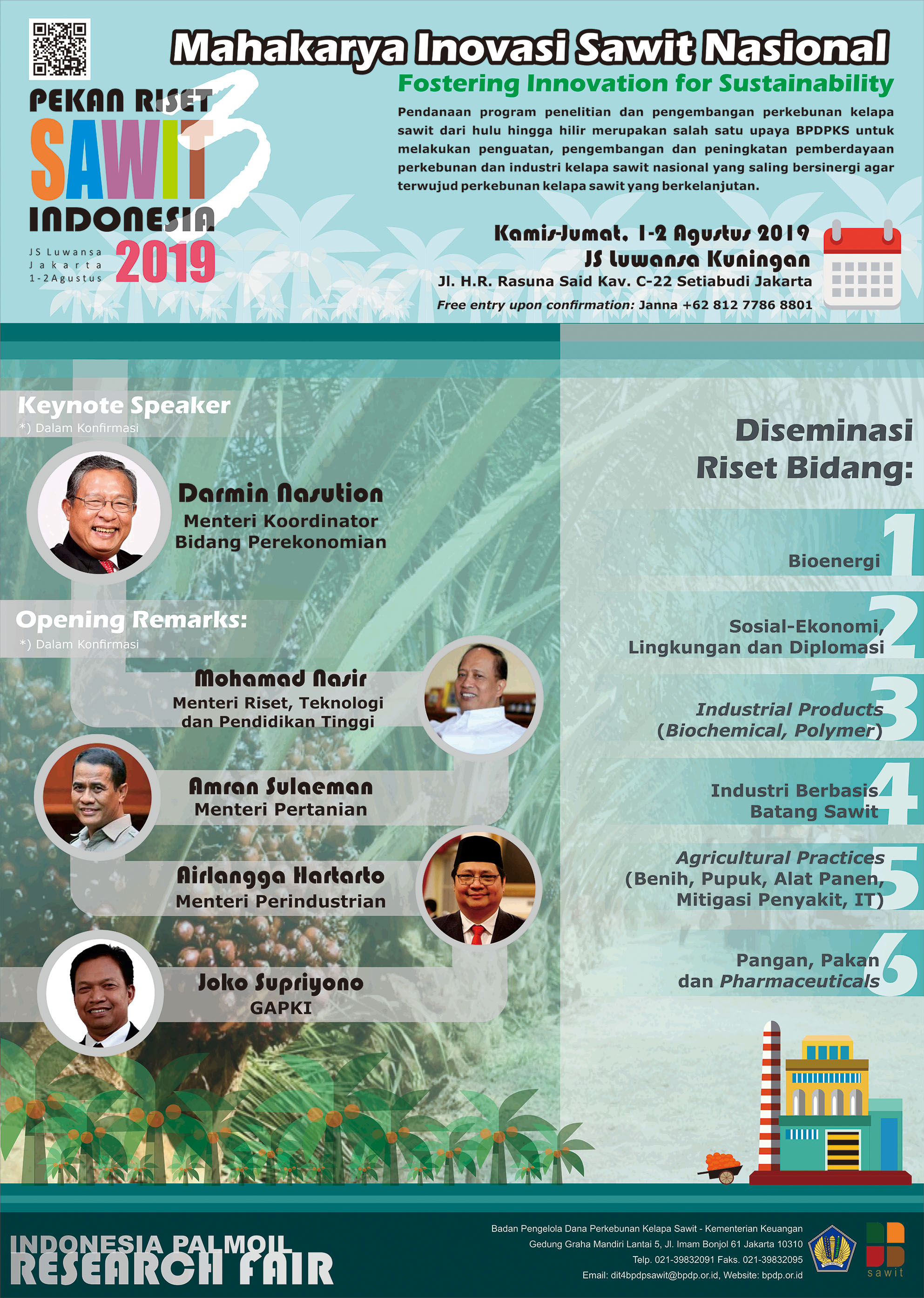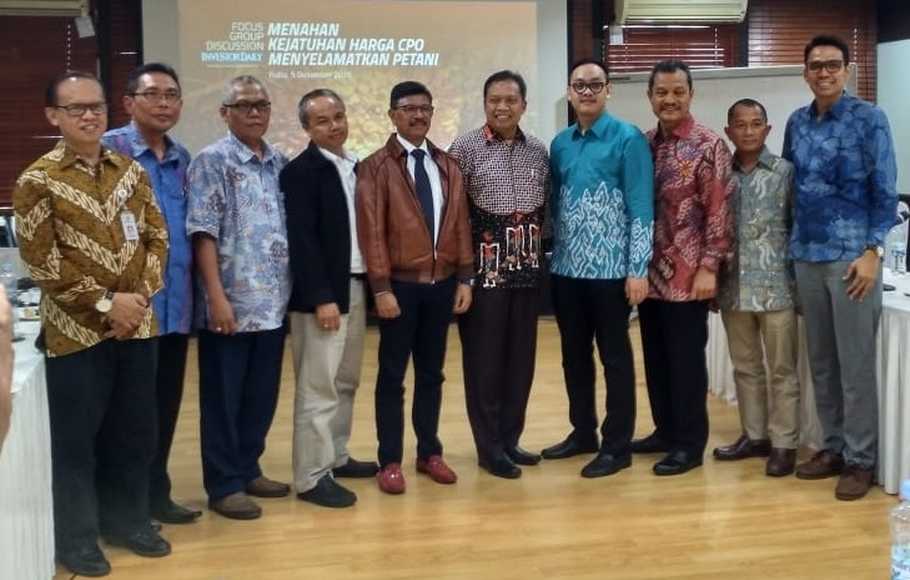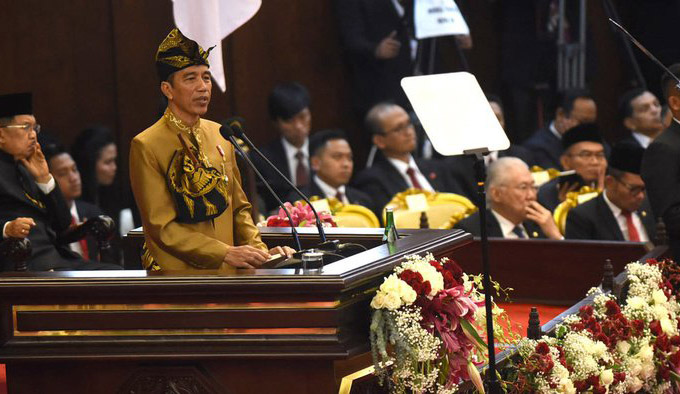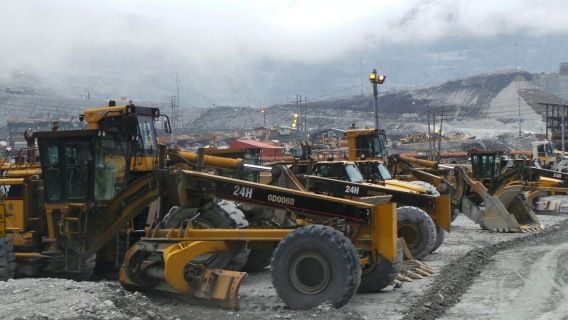Pakistan: Indonesia’s Gateway for Palm Oil Market Expansion
INDONESIAN palm oil stakeholders gathered at Hotel Kartika Chandra, Jakarta, Wednesday (8/5/2019), to discuss Indonesia’s palm oil market in South Asia, Central Asia, and Middle East. The Focus Group Discussion (FGD) was held to review recent study on palm oil market conducted by the Indonesia Oil Palm Plantation Fund Management Agency (BPDPKS) in collaboration with IPB University. The research study, titled “Pakistan’s Opportunity to Become Regional Hub for Indonesia’s Palm Oil Market Expansion in South Asia and Middle East” evaluates the key aspects for Pakistan to become regional hub for palm oil. Indonesian Ambassador for Republic of Pakistan Iwan Suyudhie Amri delivered a keynote speech, while President Director of BPDPKS Dono Boestami addressed a few remarks to the audience. The half day-long FGD also had the presence of several speakers: representatives from Economics and Management Faculty of IPB University; representatives from PwC Pakistan; Diana Chalil, a lecturer at Universitas Sumatera Utara; Togar Sitanggang, Vice Chairman of the Indonesian Palm Oil Association (Gapki). The panellists, apart from academicians, came from different backgrounds.
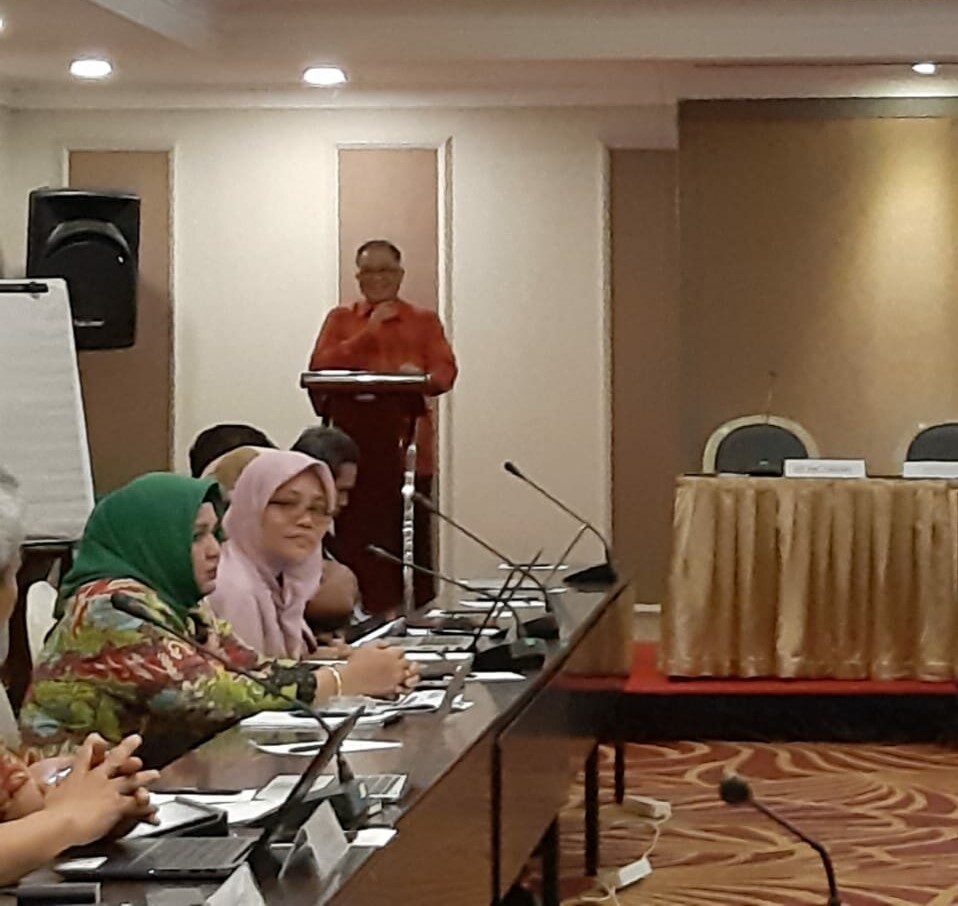
INDONESIAN palm oil stakeholders gathered at Hotel Kartika Chandra, Jakarta, Wednesday (8/5/2019), to discuss Indonesia’s palm oil market in South Asia, Central Asia, and Middle East.
The Focus Group Discussion (FGD) was held to review recent study on palm oil market conducted by the Indonesia Oil Palm Plantation Fund Management Agency (BPDPKS) in collaboration with IPB University.
The research study, titled “Pakistan’s Opportunity to Become Regional Hub for Indonesia’s Palm Oil Market Expansion in South Asia and Middle East” evaluates the key aspects for Pakistan to become regional hub for palm oil.
Indonesian Ambassador for Republic of Pakistan Iwan Suyudhie Amri delivered a keynote speech, while President Director of BPDPKS Dono Boestami addressed a few remarks to the audience.
The half day-long FGD also had the presence of several speakers: representatives from Economics and Management Faculty of IPB University; representatives from PwC Pakistan; Diana Chalil, a lecturer at Universitas Sumatera Utara; Togar Sitanggang, Vice Chairman of the Indonesian Palm Oil Association (Gapki).
The panellists, apart from academicians, came from different backgrounds. They included Bustanul Arifin, a professor at UNILA and Reasearh Commission of BPDPKS; Parulian Hutagaol, a professor of Economics and Management at IPB University; and Delima Azahari, Chairman of Indonesian Estate Owners Association (GPPI).
 Pakistan is one of Indonesia’s strategic trading partner. Trade Ministry acknowledges that since Indonesia and Pakistan signed Preferential Trade Agreement (IP PTA) in 2013, Indonesia has replaced Malaysia domination in palm oil market in Pakistan. In 2016, Indonesia held about 82% of palm oil market in Pakistan, while Malaysia held about 18%. It was a big improvement as in 2013, Indonesia’s market share was only 38% and Malaysia 62%.
Within current global palm oil market constellation, Pakistan is a strategic destination as well as a gateway for Indonesia to the central region of Asia and surrounding regions. Currently, Pakistan is the second largest Indonesia’s trading partner in South Asia.
Pakistan is one of Indonesia’s strategic trading partner. Trade Ministry acknowledges that since Indonesia and Pakistan signed Preferential Trade Agreement (IP PTA) in 2013, Indonesia has replaced Malaysia domination in palm oil market in Pakistan. In 2016, Indonesia held about 82% of palm oil market in Pakistan, while Malaysia held about 18%. It was a big improvement as in 2013, Indonesia’s market share was only 38% and Malaysia 62%.
Within current global palm oil market constellation, Pakistan is a strategic destination as well as a gateway for Indonesia to the central region of Asia and surrounding regions. Currently, Pakistan is the second largest Indonesia’s trading partner in South Asia.
 Pakistan is also the 19th top Indonesia’s export destination which represents roughly 1% of overall global export. From import perspective, Pakistan ranks 46th of total global Indonesia’s import.
It’s been recognized that the Middle East, South Asia and Central Asia regions represent 47.57% of the Indonesian palm oil market. Statistics shows that countries in the regions can become captive markets for Indonesian palm oil products. These captive markets can be utilized by turning Pakistan into a trade and investment hub.
Apart from that, the China-Pakistan Economic Corridor, which is part of One Belt One Road that connects Xinjiang with Gwadar Port in South Pakistan, may widen market access for palm oil trade. This has been possible because the economic corridor is a mega project to build and improve infrastructure, including roads, railways, oil and gas pipeline, as well as fiber optic network. ***
Pakistan is also the 19th top Indonesia’s export destination which represents roughly 1% of overall global export. From import perspective, Pakistan ranks 46th of total global Indonesia’s import.
It’s been recognized that the Middle East, South Asia and Central Asia regions represent 47.57% of the Indonesian palm oil market. Statistics shows that countries in the regions can become captive markets for Indonesian palm oil products. These captive markets can be utilized by turning Pakistan into a trade and investment hub.
Apart from that, the China-Pakistan Economic Corridor, which is part of One Belt One Road that connects Xinjiang with Gwadar Port in South Pakistan, may widen market access for palm oil trade. This has been possible because the economic corridor is a mega project to build and improve infrastructure, including roads, railways, oil and gas pipeline, as well as fiber optic network. ***
 Pakistan is one of Indonesia’s strategic trading partner. Trade Ministry acknowledges that since Indonesia and Pakistan signed Preferential Trade Agreement (IP PTA) in 2013, Indonesia has replaced Malaysia domination in palm oil market in Pakistan. In 2016, Indonesia held about 82% of palm oil market in Pakistan, while Malaysia held about 18%. It was a big improvement as in 2013, Indonesia’s market share was only 38% and Malaysia 62%.
Within current global palm oil market constellation, Pakistan is a strategic destination as well as a gateway for Indonesia to the central region of Asia and surrounding regions. Currently, Pakistan is the second largest Indonesia’s trading partner in South Asia.
Pakistan is one of Indonesia’s strategic trading partner. Trade Ministry acknowledges that since Indonesia and Pakistan signed Preferential Trade Agreement (IP PTA) in 2013, Indonesia has replaced Malaysia domination in palm oil market in Pakistan. In 2016, Indonesia held about 82% of palm oil market in Pakistan, while Malaysia held about 18%. It was a big improvement as in 2013, Indonesia’s market share was only 38% and Malaysia 62%.
Within current global palm oil market constellation, Pakistan is a strategic destination as well as a gateway for Indonesia to the central region of Asia and surrounding regions. Currently, Pakistan is the second largest Indonesia’s trading partner in South Asia.
 Pakistan is also the 19th top Indonesia’s export destination which represents roughly 1% of overall global export. From import perspective, Pakistan ranks 46th of total global Indonesia’s import.
It’s been recognized that the Middle East, South Asia and Central Asia regions represent 47.57% of the Indonesian palm oil market. Statistics shows that countries in the regions can become captive markets for Indonesian palm oil products. These captive markets can be utilized by turning Pakistan into a trade and investment hub.
Apart from that, the China-Pakistan Economic Corridor, which is part of One Belt One Road that connects Xinjiang with Gwadar Port in South Pakistan, may widen market access for palm oil trade. This has been possible because the economic corridor is a mega project to build and improve infrastructure, including roads, railways, oil and gas pipeline, as well as fiber optic network. ***
Pakistan is also the 19th top Indonesia’s export destination which represents roughly 1% of overall global export. From import perspective, Pakistan ranks 46th of total global Indonesia’s import.
It’s been recognized that the Middle East, South Asia and Central Asia regions represent 47.57% of the Indonesian palm oil market. Statistics shows that countries in the regions can become captive markets for Indonesian palm oil products. These captive markets can be utilized by turning Pakistan into a trade and investment hub.
Apart from that, the China-Pakistan Economic Corridor, which is part of One Belt One Road that connects Xinjiang with Gwadar Port in South Pakistan, may widen market access for palm oil trade. This has been possible because the economic corridor is a mega project to build and improve infrastructure, including roads, railways, oil and gas pipeline, as well as fiber optic network. *** 

